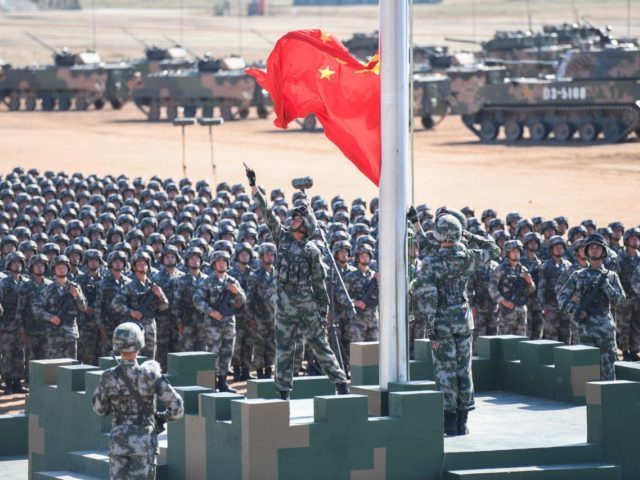The top U.S. trade official on Monday said that China’s mercantilism poses an “unprecedented” threat to trade that the World Trade Organization is not equipped to handle.
“The sheer scale of their coordinated efforts to develop their economy, to subsidize, to create national champions, to force technology transfer, and to distort markets in China and throughout the world is a threat to the world trading system that is unprecedented,” U.S. Trade Representative Robert Lighthizer said in a speech at the Center for Strategic and International Studies.
In his prepared remarks, Lighthizer emphasized that the Trump administration was taking a new approach to trade because past practices had led to failed policies and large, destructive trade imbalances. Lighthizer said:
I believe–and I think the president believes–that we must be proactive, the years of talking about these problems has not worked and that we must use all instruments we have to make it expensive to engage in non-economic behavior, and to convince our trading partners to treat our workers, farmers, and ranchers fairly. We must demand reciprocity at home and in international markets. So expect change, expect new approaches, and expect action.
Lighthizer singled out China’s policy of seeking to transfer U.S. technology and know-how to Chinese companies as a major problem. The Trump administration this summer launched a probe of China’s practices, known as a Section 301 investigation after its place in U.S. trade law.
Lighthizer went on to say:
There are an awful lot of complaints about forced technology transfer. CEOS come in to see me continuously. And almost every CEO of a major company at some point in the discussion will say they’re having a problem with China forcing them to join into joint ventures, turning over intellectual property to the joint venture, having to license their intellectual property at less than market value. We’re not going to prejudge it. But there’s an awful lot to indicate that there’s a major problem here.
The remarks on China echoed those made by former White House Chief Strategist and now returned Briebart Executive Chairman Steve Bannon in his interview with Charlie Rose on 60 Minutes.
By subscribing, you agree to our terms of use & privacy policy. You will receive email marketing messages from Breitbart News Network to the email you provide. You may unsubscribe at any time.
“China is, through forced technology transfer and through stealing our technology … cutting out the beating heart of American innovation,” Bannon said.
In a recent presentation at a Hong Kong investment conference, Bannon said that “forced technology transfer will be the central issue that must be resolved” between the U.S. and China.
Lighthizer drew a sharp contrast between former Democratic presidential candidate Hillary Clinton’s views on trade and Donald Trump’s. Clinton, he said, “professed some degree of skepticism on trade” that was divorced from those of her husband Bill Clinton and those of the Obama administration, in which Hillary Clinton had served as Secretary of State.
“While some politicians can be accused of changing to populist positions to get votes, this cannot be said of the president. If you go back 10, 20, 30 years, or even longer, you see a remarkable consistency. He has been a critic–he has been critical of the prevailing U.S. trade policy of so-called free trade deals and of their effects on workers,” Lighthizer said. “So we will have a change in trade policy.
Lighthizer noted that the administration is still skeptical about whether NAFTA can be successfully renegotiated, echoing remarks of President Trump this summer.
“We’re moving at warp speed but we don’t know whether we’re getting to a conclusion,” he said. “We’re running very quickly somewhere.”
Trump has said that he believes the U.S. may wind up pulling out of NAFTA if the negotiations fail.

COMMENTS
Please let us know if you're having issues with commenting.